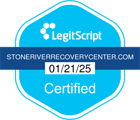As you navigate recovery, you may begin to notice that your mental health is impacted by how you are feeling physically. This is due to the complex connection between physical health and anxiety. Understanding this connection and developing practical strategies to nurture both aspects are essential for lasting recovery and overall well-being.
Physical health encompasses components like exercise, nutrition, sleep, and overall lifestyle choices. Neglecting these aspects can contribute to heightened anxiety levels, exacerbating existing mental health challenges.
Practical Strategies to Improve Physical Health and Manage Anxiety
Incorporating lifestyle changes that promote physical health can effectively reduce anxiety symptoms and enhance your overall well-being. The following are some practical strategies to consider to improve your physical health and manage anxiety:
Prioritize Regular Exercise
Add regular physical activity to your daily routine. Strive for a minimum of 30 minutes of moderate-intensity exercise on most days of the week, selecting activities that bring you joy and fulfillment, such as walking, cycling, yoga, or dancing. Consistent engagement in physical exercise not only diminishes stress hormones but also fosters a sense of relaxation, enhances sleep quality, and boosts self-esteem, contributing to overall well-being and resilience against anxiety.
Embrace a Healthy Eating Plan
Nourish both your body and mind by choosing foods rich in nutrients that promote mental health and enhance overall well-being. Include whole, nutrient-dense foods like fruits, vegetables, lean proteins, whole grains, and healthy fats like avocado or olive oil in your diet. These foods provide essential vitamins, minerals, and antioxidants that support brain function and mood regulation.
At the same time, limit your intake of processed foods, sugary snacks, and caffeine, as these can worsen anxiety symptoms and destabilize your mood.
In addition, make hydration a priority, and drink plenty of water throughout the day. Dehydration can amplify feelings of stress and anxiety and impair cognitive function.
Prioritize Quality Sleep
Establish a consistent sleep routine by going to bed and waking up at the same time each day, even on weekends. Incorporate calming activities into your bedtime routine, such as indulging in a warm bath, practicing mindfulness or deep breathing exercises, or reading a good book. Cultivate a comfortable sleep environment by minimizing screen exposure and stimulating activities before bedtime, ensuring your bedroom is conducive to relaxation and rest. Prioritizing quality sleep not only enhances cognitive function and emotional resilience but also strengthens stress management skills, reducing vulnerability to anxiety disorders.
Practice Stress Management Techniques
Add stress-reduction techniques into your daily routine to manage anxiety more effectively. Experiment with mindfulness meditation, progressive muscle relaxation, deep breathing exercises, or guided imagery to promote relaxation and cultivate present-moment awareness. Participate in activities that bring you joy and can help you relax. This may include spending time outdoors in nature, listening to music, practicing creative expression such as writing or drawing, or connecting with loved ones.
Prioritizing self-care activities is essential for nurturing your body, mind, and spirit. By dedicating time each day to activities that replenish and rejuvenate you, you can fortify your ability to navigate stressors with grace and maintain a sense of balance and vitality.
When to Seek Professional Support
If anxiety symptoms persist or significantly interfere with your daily functioning, don’t hesitate to seek professional support from a therapist, counselor, or health care provider. Cognitive-behavioral therapy (CBT), mindfulness-based therapies, and medication management can be effective interventions for managing anxiety disorders and promoting long-term recovery. Additionally, peer support groups and community resources provide valuable opportunities for connection, validation, and shared coping strategies.
If you or a loved one is struggling with substance use or mental health disorder, you are not alone. Help is available at Stone River Recovery Center in San Antonio, Texas. We offer residential treatment and detox services as well as outpatient mental health services and substance use treatment. To learn more about how we can help, please contact us today.








